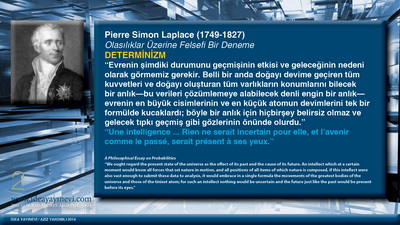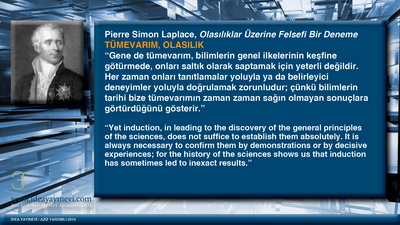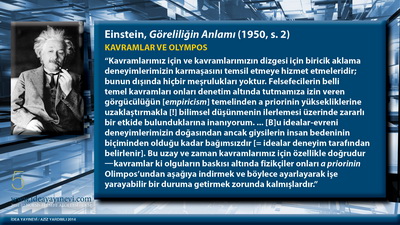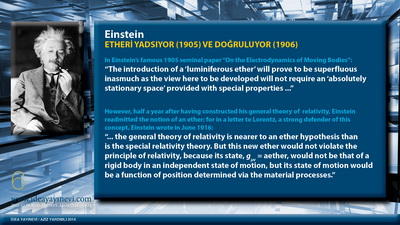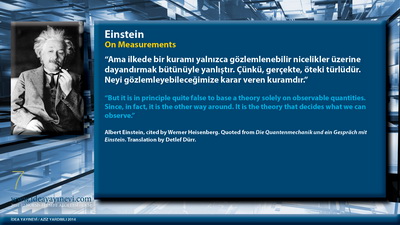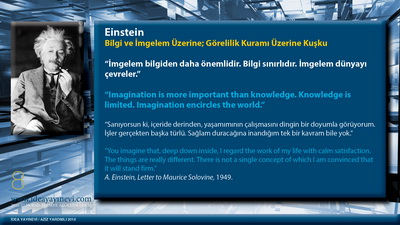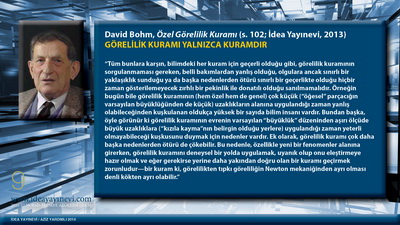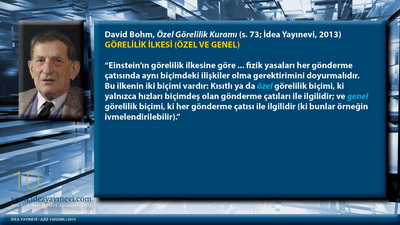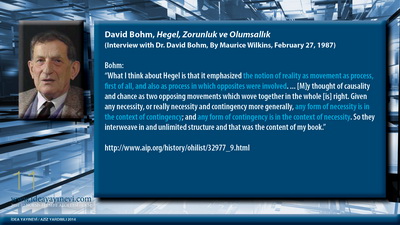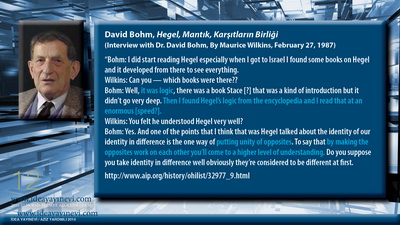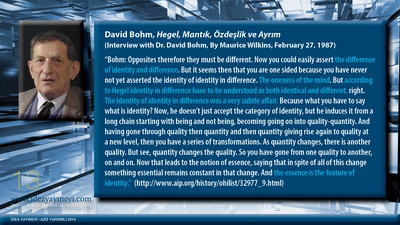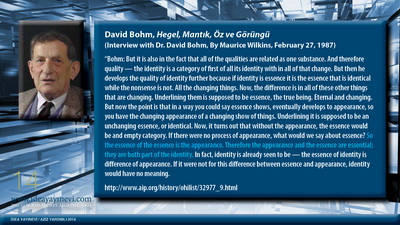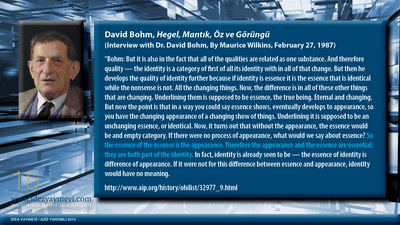David Bohm, Hegel, Mantık, Öz ve Görüngü
(Interview with Dr. David Bohm, By Maurice Wilkins, February 27, 1987)
“Bohm: But it is also in the fact that all of the qualities are related as one substance. And therefore quality — the identity is a category of first of all its identity with in all of that change. But then he develops the quality of identity further because if identity is essence it is the essence that is identical while the nonsense is not. All the changing things. Now, the difference is in all of these other things that are changing. Underlining them is supposed to be essence, the true being. Eternal and changing. But now the point is that in a way you could say essence shows, eventually develops to appearance, so you have the changing appearance of a changing show of things. Underlining it is supposed to be an unchanging essence, or identical. Now, it turns out that without the appearance, the essence would be and empty category. If there were no process of appearance, what would we say about essence? So the essence of the essence is the appearance. Therefore the appearance and the essence are essential; they are both part of the identity. In fact, identity is already seen to be — the essence of identity is difference of appearance. If it were not for this difference between essence and appearance, identity would have no meaning." •
http://www.aip.org/history/ohilist/32977_9.html |
